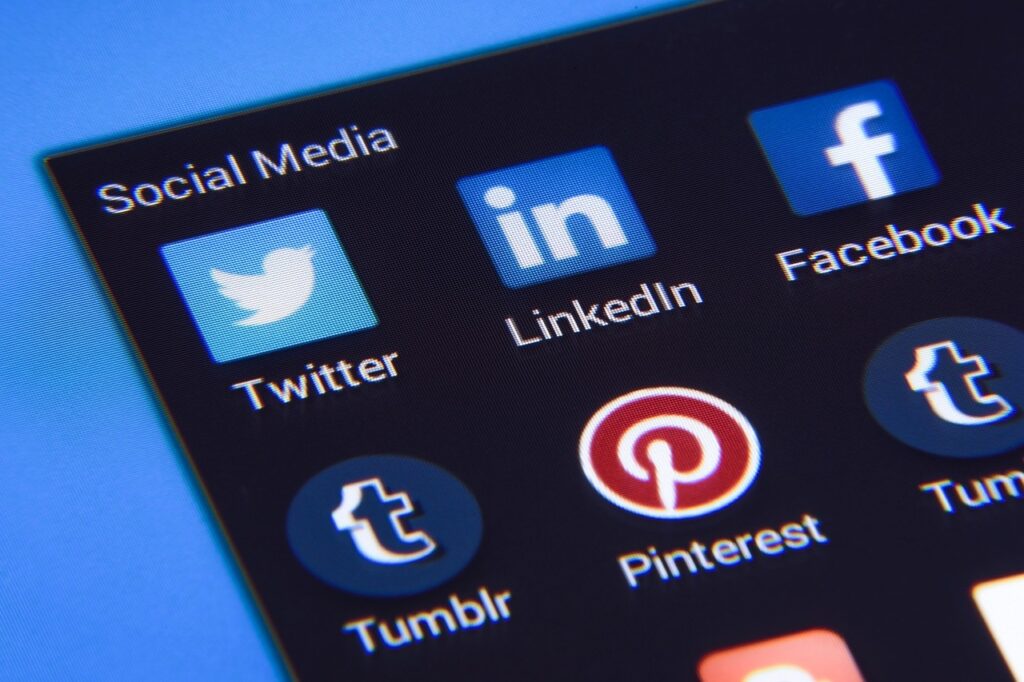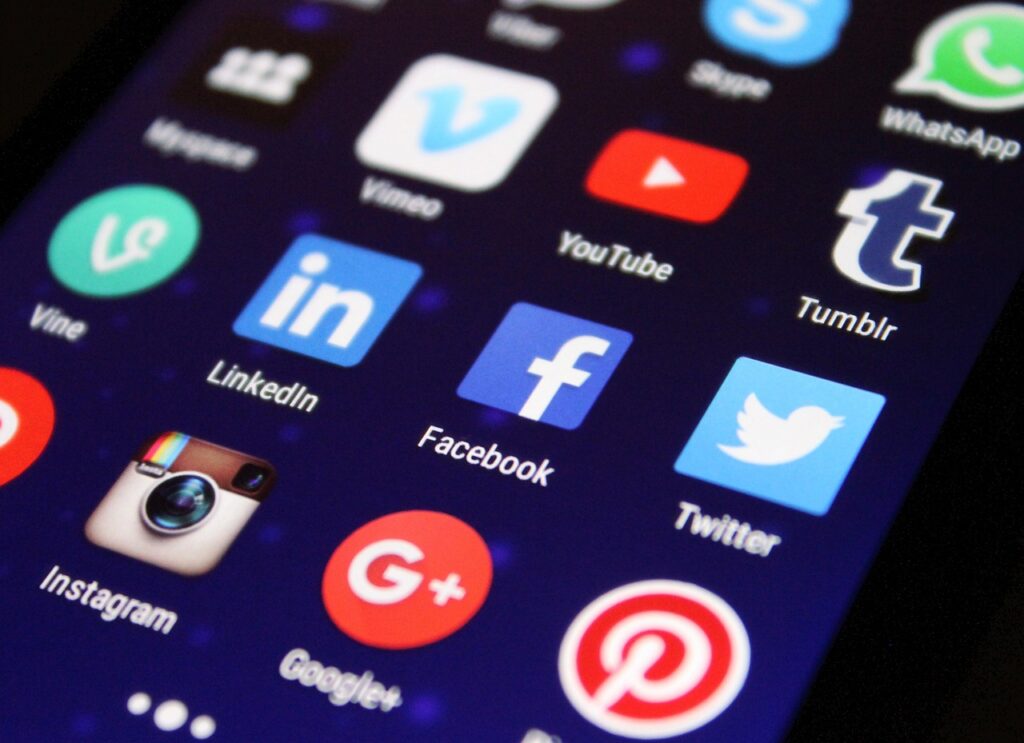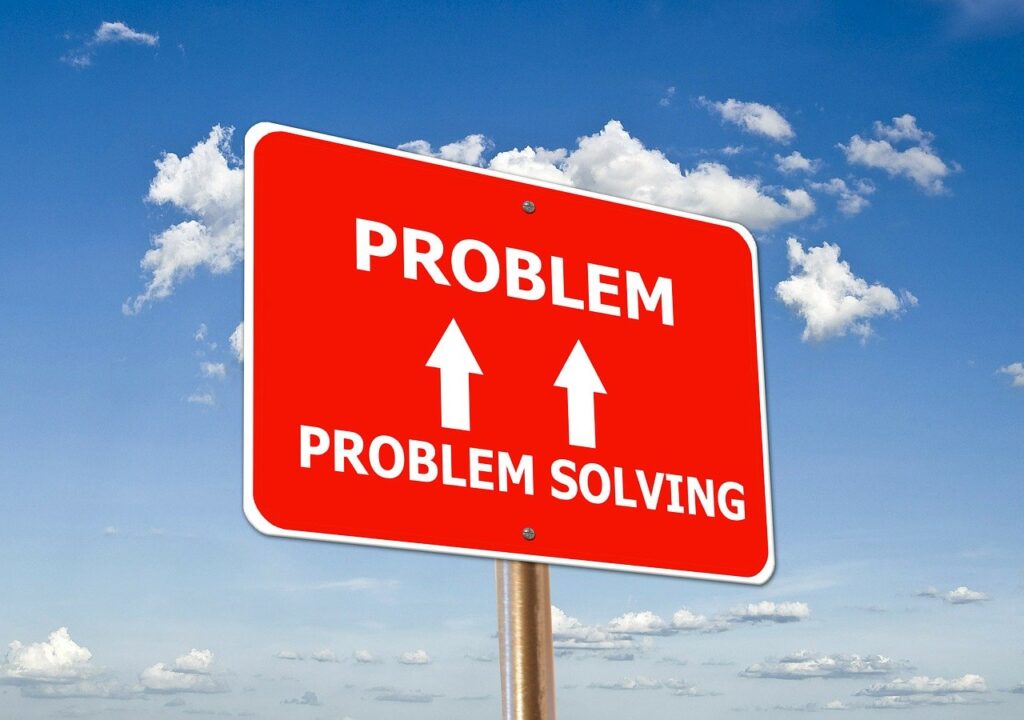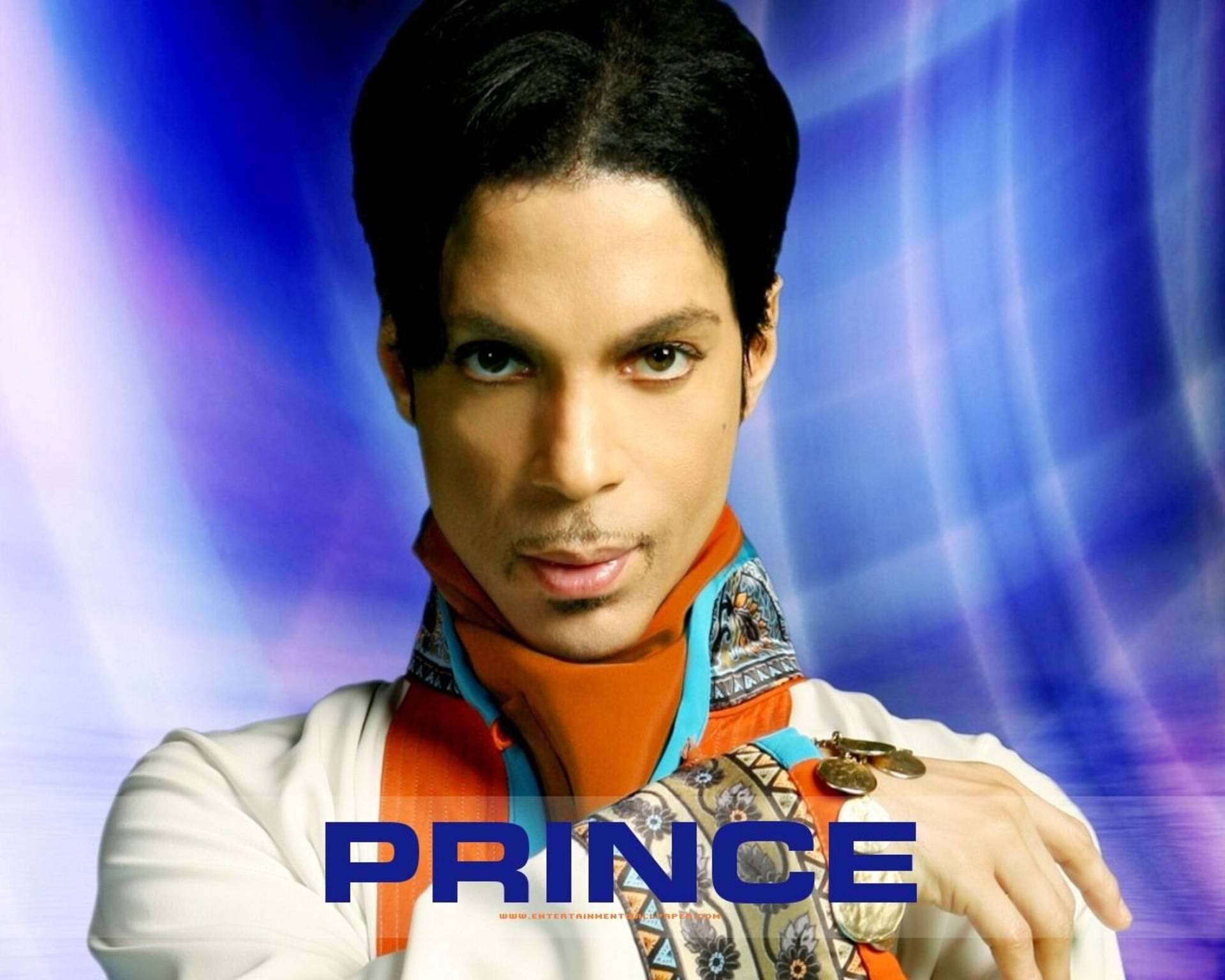Alright, buckle up, because we’re diving deep into the fascinating, sometimes wild, world of celebrity social media. You know the drill: one minute your favorite star is posting poolside selfies, the next, their entire digital history has vanished into the ether. It’s like a digital ghost town, and frankly, it always sends the internet into a frenzy. Recently, a wave of speculation erupted as several celebrities, including Usher, Megan Fox, and Pink, were reported to have mysteriously deleted their social media posts, particularly after music mogul Sean ‘Diddy’ Combs’ serious arrest on charges like trafficking and racketeering. The public, naturally, started connecting the dots, wondering if these stars were swiftly distancing themselves from the unfolding drama.
This isn’t just a fleeting trend; it’s a powerful move in the high-stakes game of public perception. Whether it’s a strategic maneuver by a savvy publicist or a personal decision to escape the digital ‘cesspool’—as Pink eloquently put it—a social media wipe sends a clear, if silent, message. It highlights the immense pressure celebrities face, where every past post, every fleeting association, can become headline news. In an age where a star’s digital footprint is as scrutinized as their red carpet ensemble, managing that online history becomes absolutely critical.
So, grab your popcorn, because we’re about to explore the 14 critical moments, or rather, the overarching reasons and dynamics, behind why a star’s social media history might just vanish into thin air. From protecting a meticulously crafted brand to navigating intense public scrutiny, and even preserving mental health, these instances peel back the curtain on the complex interplay between fame, media, and the digital age. Let’s get into it!

1. **The Public Image Imperative: Why Stars Scrub Their Online Slate**
Imagine waking up to find your entire digital footprint gone. Sounds dramatic, right? Well, in the glitzy, ever-watchful world of celebrity, maintaining a squeaky-clean public image isn’t just a suggestion—it’s practically a commandment. As our context reminds us, “‘Celebrity’ usually implies a favorable public image, as opposed to the neutrals ‘famous’ or ‘notable’, or the negatives ‘infamous’ and ‘notorious’.” This isn’t just about looking good for the cameras; it’s about safeguarding their entire career, brand, and often, their financial future in an environment where perceptions can shift faster than a viral meme.
This inherent need for a pristine online persona becomes incredibly clear when we look at the buzz around stars like Usher and Megan Fox. Rumors flew across social media, suggesting Usher’s account deletion was a calculated move to distance himself from the unfolding legal drama surrounding Diddy. Similarly, Megan Fox was noted as “cleaning up their own digital footprints.” In the blink of an eye, perceived associations can tarnish a career, making pre-emptive digital distancing a calculated move, whether initiated by the star or their watchful publicist.
From the days of Ancient Rome, where actors and gladiators were lauded, to the modern era of global superstars like Beyoncé and Taylor Swift, the public has always had a fascination with those in the limelight. But with this adoration comes immense pressure to uphold an ideal. Any misstep, any past association that could be deemed ‘infamous’ or ‘notorious,’ becomes a potential landmine. This relentless pursuit of a “favorable public image” is the bedrock upon which the entire industry of celebrity management, including strategic social media wipes, is built, serving as a constant reminder that in the public eye, perception often trumps reality.
2. **The Amplification Power of Mass Media and Social Platforms**
Ever wonder how a single tweet can become global news in seconds? That’s the sheer power of mass media and social platforms, dramatically reshaping the concept of celebrity by amplifying visibility and extending fame globally. With the rise of television, social media, and reality TV, individuals can achieve stardom not just through traditional talents but also through their personal lives and online presence. This means that every single post, every like, and every share carries an exponential weight, making any potentially controversial content a ticking time bomb.
Our context highlights how “Mass media has dramatically reshaped the concept of celebrity by amplifying visibility and extending fame globally.” This pervasive reach means that any historical social media content, no matter how old or seemingly innocuous, can be dug up, reinterpreted, and spread like wildfire. Think about Justin Bieber, who famously “got his start on YouTube by posting videos of him singing,” showcasing how accessible global fame has become through these platforms. The very tools that launch careers can also become the instruments of their intense scrutiny.
This incredible amplification is precisely why publicists and celebrities alike might opt for a social media purge. When a news cycle is dominated by a major event, like the arrest of Sean “Diddy” Combs, the media spotlight intensifies on anyone even tangentially connected. The goal of wiping a digital slate clean in such moments isn’t just about removing problematic content; it’s about controlling the narrative, reducing potential points of vulnerability, and pre-empting the inevitable deep dives by dedicated internet sleuths and news outlets eager for a fresh angle. It’s a move to reclaim some control in a landscape where content can go viral in an instant, for better or for worse.
Read more about: Behind the Wins: 7 Athlete Misdeeds from Major Sports Leagues That Were Downplayed by the Media
3. **Navigating Intense Public Scrutiny and Privacy Erosion**
Let’s be real: living under a microscope is part of the celebrity package, but with social media, that microscope has become a wide-angle lens with infinite zoom. This heightened visibility brings intense public scrutiny, where every detail of a celebrity’s life is subject to constant media coverage. The pressure to maintain a perfect facade while navigating genuine privacy erosion is immense. It’s a tricky tightrope walk between being relatable and being completely exposed, and sometimes, the only way to catch your balance is to remove some of the rope.
The context explicitly states that “This heightened visibility brings intense public scrutiny, where every detail of a celebrity’s life is subject to constant media coverage.” It also notes that celebrities are “navigating the pressures of privacy erosion and mental health challenges.” Pink’s personal decision to wipe her Twitter account in February, long before the recent Diddy headlines, perfectly illustrates this. She spoke about needing to quit X because “Now it’s just a cesspool of unhappy people that go on there to dump. It’s just not good for your mental health.”
Whether a star or their publicist initiates the clean-up, the core motivation often circles back to managing this relentless scrutiny and the accompanying privacy loss. In situations where a star is caught in the crosshairs of a major news story, or when past comments could be misconstrued, a social media wipe becomes a tactical retreat. It’s an attempt to minimize the surface area for attack, to deny the public fodder for further speculation, and in Pink’s case, to protect one’s own well-being from the relentless negativity that can permeate digital spaces. It’s a stark reminder that even the most famous among us need a break from the constant glare.
Read more about: Beyond the Dashboard: Unmasking the Shocking Data Collection Habits of Your Connected Car

4. **Celebrities as Brands: Protecting Digital Assets**
Forget mere entertainers; today’s top celebrities are full-blown empires, and their digital presence is a cornerstone of that empire. “Celebrities often become brands themselves, influencing trends and consumer behavior,” the context points out. From fashion lines to beauty products, and even sports team ownership, a star’s name, image, and online persona are meticulously cultivated assets, much like a multi-million-dollar corporation’s brand identity. Mess with the brand, and you mess with the bottom line.
Think of entrepreneurs like David Beckham, who is a “successful entrepreneur, co-owning the Major League Soccer team Inter Miami and engaging in high-profile endorsements with brands such as Adidas and H&M.” Or LeBron James, with endorsement contracts spanning “AT&T, The Coca-Cola Company, Crypto.com, General Motors, PepsiCo, McDonald’s, Nike, Upper Deck, Walmart, and State Farm.” These aren’t just salaried gigs; these are strategic partnerships built on their public image. Every social media post, therefore, is a reflection of that brand, and any content that could be seen as risky or damaging becomes a liability.
When a crisis erupts, or when a star needs to distance themselves from a controversial figure or situation, protecting this brand becomes paramount. Wiping social media history, whether fully or partially, serves as an emergency clean-up crew for their digital assets. It’s a way to quickly scrub any content that might contradict current messaging, compromise endorsement deals, or simply distract from their carefully constructed persona. This swift action aims to maintain the integrity of their commercial brand, ensuring profitability for those who exploit their popularity, and perhaps also for themselves, as defined by Greg Jenner’s take on celebrity: “whose commercial brand is made profitable for those who exploit their popularity, and perhaps also for themselves.”

5. **The Dual Edge of Public Portrayals: Perfection vs. Scandal**
In the grand theater of celebrity, stars are often cast in one of two roles: the flawless paragon of success or the scandalous figure riddled with flaws. There’s rarely an in-between, and social media often magnifies this dichotomy. As the context aptly puts it, “Celebrities are alternately portrayed as glowing examples of perfection, when they garner awards, or as decadent or immoral if they become associated with a scandal.” This constant swinging pendulum of public opinion means that every digital post is judged through an incredibly harsh lens.
This phenomenon becomes painfully clear when a celebrity’s past social media activity is dredged up during a controversy. What might have been an innocent, off-the-cuff remark years ago can suddenly be re-contextualized into evidence of something far more sinister. The public, fueled by mass media, can have a “love/hate relationship with celebrities,” and their “successes and shortcomings are often made very public.” When a star is associated with a scandal, especially one as serious as the Diddy situation, the pressure to control their narrative reaches an all-time high.
Therefore, a social media wipe often functions as a decisive step to escape the negative portrayal and realign with the desired image. It’s about managing the ‘decadent or immoral’ tag and attempting to move back towards the ‘glowing examples of perfection.’ By erasing potentially problematic content, publicists and stars aim to limit the ammunition for critics and reassert control over their public narrative, hoping to stem the tide of negativity before it permanently stains their reputation and career. It’s an essential, if often speculated, tool in the ongoing battle for public favor.
6. **The Ubiquity of Celebrity Social Media Presence**
Let’s face it, trying to find a major celebrity without a social media presence these days is like trying to find a needle in a digital haystack. “Most high-profile celebrities participate in social networking services and photo or video hosting platforms such as YouTube, Twitter, Facebook, Instagram, and Snapchat,” our context reminds us. This isn’t just a casual pastime; it’s an expected part of being a public figure, a direct line to their fans, and a platform for self-promotion. Their online presence is vast, varied, and, crucially, often incredibly extensive, accumulating years of posts, comments, and interactions.
From singers like Justin Bieber, whose career launched from YouTube, to influencers like Tila Tequila who gained fame through MySpace, social media has become the default arena for cultivating and maintaining celebrity. The sheer volume of content generated over years means that a celebrity’s digital footprint isn’t just a few posts; it’s a sprawling archive. This extensive online history, while great for connection, also presents an enormous challenge when a crisis hits. Every single tweet, every Instagram story, every Facebook comment becomes a potential point of interest for those looking to unearth connections or past statements.
Given this ubiquity, a comprehensive social media wipe becomes an almost Herculean task, but one that is sometimes deemed necessary. When the stakes are high, as in situations involving serious legal accusations or highly controversial associations, the effort to “clean up” years of digital activity reflects the critical importance of reputation management. It underscores how deeply interwoven a celebrity’s online presence is with their entire public identity, and how swiftly that presence can be perceived as a liability, prompting the urgent and often dramatic decision to erase it all.
Read more about: The Enduring Legacy of a Name: Tracing ‘Jennifer’ Through Centuries of Cultural Influence and Global Popularity

7. **Direct Fan Engagement vs. Controlled Narrative**
Social media was hailed as a game-changer because it allowed celebrities to bypass traditional media gatekeepers and connect directly with their fans. It humanizes stars in a way that, as the context notes, “arouses public fascination as evident by the success of magazines such as Us Weekly and People Weekly.” Fans can interact directly, feel closer, and gain insights into their favorite celebrity’s life. However, this direct line comes with a significant trade-off: a loss of ultimate control over the narrative.
Platforms like Twitter, Facebook, Instagram, and YouTube allow for unprecedented access, enabling fans to “directly contact [celebrities] through [their] content and… interact with him on several social media platforms,” as seen with Justin Bieber. This immediate, unmediated interaction creates a sense of authenticity, but it also means that spontaneous posts or unguarded comments can quickly spiral out of control. The curated image often takes a backseat to the raw, unfiltered reality of human interaction, which isn’t always polished or perfect.
This tension between authentic engagement and the need for a tightly controlled narrative is a key reason why social media wipes, whether by a star or their publicist, occur. Pink’s experience, where she tweeted “a dot, a period” and received “absolute hatred” like “I hope you die slowly,” perfectly illustrates the dark side of direct engagement. She realized, “you do not need to participate in any of that.” While direct engagement builds connection, it also opens the floodgates to public opinion, both good and bad. When the bad starts to outweigh the good, or when a controlled message is critical, stepping back or wiping the slate clean is an act of reasserting narrative control, prioritizing carefully crafted messaging over the unpredictable spontaneity of real-time interaction.
Okay, so we’ve just unpacked the ‘why’ behind stars hitting that big, scary delete button on their digital lives. It’s all about maintaining that picture-perfect image, right? But what happens when the dust settles, or rather, when it’s still furiously swirling? Now, let’s dive into the messy, often unseen, challenges and consequences of living under that digital microscope. From battling mental health woes to the strategic dance of crisis management, and the constant tightrope walk between being *real* and being *controlled*, celebrity social media is a wild ride with some serious repercussions.
We’re talking about the real impacts, the struggles, and the delicate balancing act that even the most famous among us face. It’s not just about deleting a few old tweets; it’s about navigating a world where every single interaction can become a headline, and every past post a potential landmine. Let’s get into the nitty-gritty of what really goes down when your life is lived in the digital spotlight!
Read more about: Why What You’ve Heard About Breakfast Might Be Wrong: A Deep Dive into Skipping and Its Surprising Health Realities

8. **The Mental Health Toll of Constant Digital Scrutiny**
You’d think having millions of fans would be awesome, right? But imagine a world where every single thought, every off-hand comment, is dissected, judged, and often, weaponized. This isn’t just theory; our context explicitly notes that celebrities are “navigating the pressures of privacy erosion and mental health challenges.” Pink’s experience, where she described X (formerly Twitter) as “a cesspool of unhappy people that go on there to dump,” perfectly illustrates the relentless negativity that can permeate digital spaces. It’s a heavy burden, and it takes a toll.
Her decision to wipe her account wasn’t a knee-jerk reaction to a scandal but a conscious act of self-preservation. She openly shared her struggles, recalling how even a simple “dot, a period” tweet attracted “absolute hatred” and messages like “I hope you die slowly.” That kind of constant bombardment can make anyone question their digital presence. It’s a stark reminder that behind the glitz and glamour, celebrities are real people grappling with very real emotional and psychological strain.
And it’s not just about the haters. The sheer expectation of constant availability and engagement, coupled with the erosion of personal privacy, creates a pressure cooker environment. While direct fan interaction can be a beautiful thing, it also opens the floodgates to an unfiltered torrent of public opinion, praise and vitriol alike. The ongoing battle to maintain mental well-being in the face of such relentless digital exposure is a significant, often overlooked, consequence of modern fame.
Read more about: Navigating the Crossroads: Key Legal and Policy Shifts Redefining the Trucking Industry in 2025

9. **Crisis Response in the Digital Age: Rapid Damage Control**
When the storm hits, speed is everything. We saw this unfold in real-time with the speculation around Usher and Megan Fox deleting their accounts shortly after Sean “Diddy” Combs’ arrest. While the reasons might be disputed (Pink, for example, clarified her timing), the public perception was immediate: damage control. The context highlights how “Usher sent his followers into a frenzy over the weekend by completely wiping his X account…Megan Fox and Pink quickly followed suit, cleaning up their own digital footprints.” This swift action, whether pre-planned or reactive, speaks volumes about the urgency of crisis management in the digital era.
In today’s hyper-connected world, news travels at light speed, and past associations can resurface with devastating consequences. A strategically timed social media purge isn’t just about removing problematic content; it’s a powerful, albeit silent, statement of disassociation. It’s about “pre-emptive digital distancing,” attempting to sever any perceived ties before the internet’s insatiable appetite for scandal can connect the dots and weave a narrative that might be detrimental to a star’s career or personal life.
This immediate action aims to reclaim some semblance of control in a landscape where content can go viral in an instant, often for the worst possible reasons. The goal is to minimize the surface area for attack, to deny internet sleuths and news outlets fresh fodder, and to quickly pivot the narrative away from potential controversy. It’s a tactical retreat, a digital cleanse executed under immense pressure, underscoring the high stakes involved in safeguarding a celebrity’s reputation when a crisis erupts.
Read more about: Unpacking the Unsettling Rise in Car Thefts: A Consumer Reports Guide to Understanding and Protecting Your Vehicle

10. **The Peril of Past Posts: A Digital Archive’s Long Shadow**
Ever wish you could erase that embarrassing photo from high school? Now imagine your entire life, every casual thought, every fleeting opinion, every association, meticulously archived for the world to see, forever. That’s the reality for celebrities, and it’s a huge challenge. Our context reminds us that “every past post, every fleeting association, can become headline news,” and that “every single tweet, every Instagram story, every Facebook comment becomes a potential point of interest for those looking to unearth connections or past statements.” It’s like living with a permanent, public, and potentially incriminating digital shadow.
This extensive online history, built up over years across various platforms, creates a massive vulnerability. What might have been an innocent, off-the-cuff remark years ago can suddenly be dug up, re-contextualized, and blown out of proportion during a current controversy. The internet has an elephant’s memory, and the public’s appetite for historical receipts is insatiable. This makes a comprehensive social media wipe an almost Herculean task, yet one that is sometimes deemed absolutely necessary to mitigate risk.
The longer a celebrity has been online, the more content exists to be scrutinized, misinterpreted, or used against them. This relentless pressure to maintain a perfect public face, knowing that your past digital self is constantly lurking, is a significant mental and professional burden. It forces stars and their publicists into a constant defensive posture, making the decision to erase years of digital footprints not just about convenience, but about survival in an unforgiving public arena.

11. **Navigating the Public’s Love-Hate Pendulum**
Being a celebrity is a roller coaster, and we’re not just talking about the fame highs and lows. The public’s relationship with stars is often a wild “love/hate relationship,” swinging dramatically from adoration to resentment, sometimes in the blink of an eye. Our context perfectly captures this, stating, “Celebrities are alternately portrayed as glowing examples of perfection, when they garner awards, or as decadent or immoral if they become associated with a scandal.” There’s rarely a middle ground, and this constant pendulum swing creates immense pressure on how a celebrity manages their digital presence.
When a star is riding high, every post is celebrated, every outfit praised. But the moment they’re “associated with a scandal,” the narrative flips hard. What was once seen as charmingly authentic can become evidence of being “decadent or immoral.” This dual edge means that publicists and stars are constantly walking a tightrope, trying to project perfection while bracing for the inevitable backlash. The scrutiny intensifies exponentially during negative news cycles, making the careful curation of their online image absolutely critical.
This unpredictable public sentiment is a multifaceted challenge. It forces celebrities and their teams to be incredibly strategic about what they share, when they share it, and how they react when public opinion sours. A social media wipe, in this context, can be an attempt to reset the narrative, to strip away the ammunition fueling negative portrayals, and to try and nudge that pendulum back towards the ‘glowing examples of perfection,’ even if temporarily. It’s a never-ending battle for public favor.

12. **When Fame Fades: The Psychological Adjustment Challenge**
Fame, our context tells us, “has an addictive quality to it.” Imagine living in a constant spotlight, receiving adulation, and feeling the rush of widespread recognition. It sounds incredible, right? But what happens when that spotlight starts to dim, when the viral buzz fades, and the calls from publicists become less frequent? This is a profound, often traumatic, challenge that many celebrities face: the psychological adjustment when their fame recedes. “When a celebrity’s fame recedes over time,” the context highlights, “the celebrity may find it difficult to adjust psychologically.” It’s not just about losing status; it’s about losing a part of their identity.
This makes social media management in the twilight of fame incredibly tricky. Should they try to spark new interest, risk appearing desperate, or quietly retreat? The pressure to stay relevant can be immense, leading to difficult decisions about how to maintain a digital presence, or whether to even bother. It’s a delicate dance between trying to re-engage with an audience that might have moved on and accepting a quieter, more private existence.
The difficulty in adjusting is a significant, often painful, consequence of a life lived so publicly. It can lead to mental health struggles, as the source of their ‘fix’—public adoration and attention—diminishes. For those who built careers on their online persona, managing the decline of that digital footprint becomes an existential challenge, far beyond simply deleting old posts. It’s about coming to terms with a new reality and finding meaning outside the all-consuming glare of celebrity.

13. **The Publicist’s Tightrope: Balancing Authenticity and Control**
Behind every seemingly spontaneous celebrity post, there’s often a team of strategists, agents, and publicists working overtime. Our context makes it clear: “Access to celebrities is strictly controlled by the celebrities entourage of staff which includes managers, publicists, agents, personal assistants, and bodyguards.” This isn’t just about security; it’s about meticulously crafting and controlling the celebrity narrative. The publicist, in particular, walks a constant tightrope, trying to strike that delicate balance between presenting an authentic, relatable persona and maintaining an iron grip on the message.
In a world craving authenticity, unscripted moments can go viral for all the right reasons, humanizing a star and deepening fan connection. But the risk of an unapproved, unguarded comment going sideways is always present. Publicists are constantly weighing these risks, deciding which battles to fight, which posts to approve, and which digital paths to scrub clean. It’s a relentless strategic game of chess, where every move on social media has the potential to either elevate or torpedo a career.
This struggle highlights the core tension in celebrity social media management: the desire for genuine fan engagement versus the absolute necessity of a controlled narrative. The more platforms a celebrity is on, and the more direct access fans have, the harder it becomes to manage. The publicist’s role is to navigate this incredibly complex landscape, ensuring the celebrity’s brand remains intact, even if it means sacrificing some spontaneous, unedited moments. It’s a constant juggle, often invisible to the public, but crucial to the longevity of a star’s career.

14. **The Weight of Influence: Celebrities as Health Messengers**
Being famous isn’t just about making movies or topping the charts anymore; it comes with an unexpected and enormous responsibility: influencing public health. Our context reveals that “Recently, there has been more attention toward the impact celebrities have on health decisions of the population at large,” and that “It is believed that the public will follow celebrities’ health advice to some extent.” Suddenly, a celebrity’s platform isn’t just for promoting their latest project; it’s a megaphone for health, for better or worse.
This presents a unique challenge for social media managers. On one hand, celebrity endorsements of evidence-informed health advice can have massively positive impacts, reaching millions and encouraging healthier behaviors. But, and this is a big but, the context also warns of “detrimental effects if the health advice is not accurate enough.” One wrong post, one ill-informed recommendation, and a celebrity could inadvertently cause harm to their massive following, or spark a wave of misinformation that’s incredibly difficult to undo.
Managing this influential aspect means more than just avoiding scandals; it means understanding the profound power of their platform beyond entertainment. Publicists must now consider the ethical implications of every health-related post, ensuring that their client’s influence is used responsibly and accurately. It’s a new layer of complexity to social media management, turning celebrities into unexpected, and sometimes unprepared, health communicators, with far-reaching consequences for public well-being.
Wow, what a journey! We’ve peeled back the layers of celebrity social media, from the frantic purges sparked by major news to the quiet battles fought for mental peace and the intricate dance of maintaining a public image in the face of relentless scrutiny. It’s clear that a star’s digital footprint isn’t just a collection of posts; it’s a battleground for brand, reputation, and sanity.
In a world where every tweet is amplified and every past photo can resurface, the decision to wipe a social media history is far more than a casual delete. It’s a calculated move, a desperate plea for privacy, or a strategic pivot in the ever-unfolding drama of fame. As we’ve seen, the challenges are immense, the consequences are real, and the balance between authentic connection and meticulously controlled narratives is a tightrope walk that never truly ends. So, next time you see a star’s account mysteriously vanish, remember there’s a whole universe of pressure, strategy, and human struggle behind that digital disappearing act. Stay tuned, because in the world of celebrity, the feed is always refreshing, and the drama never truly stops!







